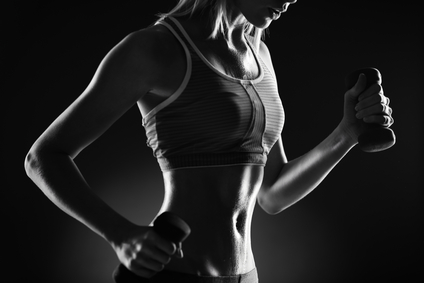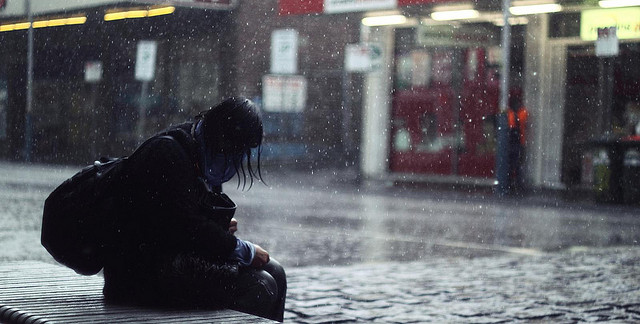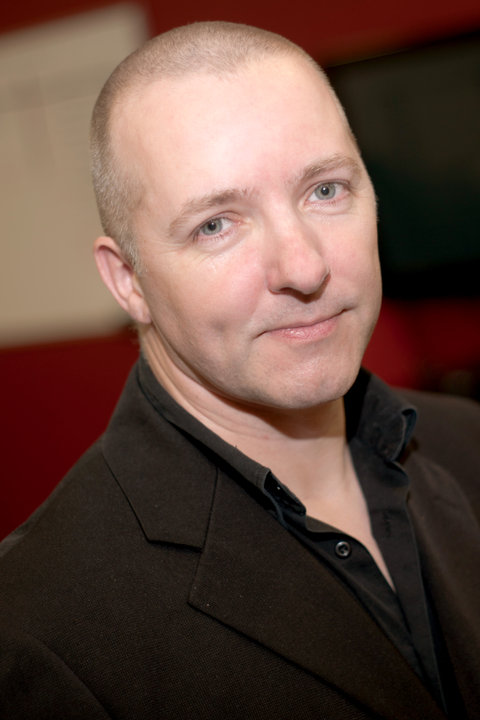RB-X – Does real beauty start with the letter ‘g?’
Dove’s evolving Real Beauty may have done women everywhere a solid by highlighting real skin and real curves. But it appears that the manufacturer is beginning to believe its own hype with the latest iteration: “Is Beauty a State of Mind?”
Does real beauty start with the letter ‘G’ as in, ‘gullible?’
The Dove State of Mind campaign highlights several women of varying ages and ethnicities who are recruited to try the RB-X ‘Beauty Patch.’ For a week, they are asked to apply the patch and keep a daily diary. And imagine this: in simply one week, these Doubting Debbies have blossomed into Boastful Beauties. The rub? There’s nothing in the patch; it’s just a patch. And when they women learn that the patch is a placebo, they each have an epiphany! They were beautiful ‘all along,;’ the patch simply boosted their self-confidence. Oopsie! How could they not have known (blush, giggle, yikes).
Wow, colour me dumbfounded.
Ladies, indeed, it is time to take a step back and redefine the meaning of beauty. While it may be a state of mind (at times), it is certainly not a Dove State.
Read More
Cosmetic surgery for guys?!
Last week, I talked about how men’s self-perception changes over time, as they age. After the column, I was amused and touched to have one friend contact me and ask if I was okay. The answer, for the record, was and is yes.
I’m pretty comfortable with my physical self. That doesn’t mean I wasn’t ecstatic to be on my bike last Sunday for my first outside ride of the season, or looking forward to dropping a few pounds from around the waist as I ride more and more frequently.
I am in not even in the ballpark where I might consider getting a surgical procedure done to enhance my looks. But apparently, more and more of my counterparts are in that ballpark. According to a Business Insider article, men are the new growth area for cosmetic surgery. The American Society for Aesthetic Plastic Surgery reported that cosmetic procedures carried out on men more than doubled between 1997 and 2012.
According to this New York cosmetic surgeon, there are four types of guys who get cosmetic surgery: the “male model”, the “bodybuilder”, the “CEO”, and the “athletic dad.” I don’t fit any of those, so perhaps that’s why cosmetic surgery is not on my radar. He also associates certain types of procedures with each of those types.
So what do guys get done? The top five procedures (in the US at least) are: liposuction, rhinoplasty, eyelid surgery, breast reduction to treat enlarged male breast, and ear shaping. While you might associate cosmetic surgery with hair replacement, that procedure on its own is almost as big as all cosmetic surgery in terms of numbers of procedures.
I don’t want to judge. If someone wants to get one or more of these procedures, that’s up to them. For me, I think of it like spending megabucks on hotsy-totsy carbon wheels for my bike. Yes, I might save up to a pound. But of course, if I ate better and exercised more, I could probably lose way MORE than a pound.
Like most choices we face, cosmetic surgery has benefits, risks, costs and opportunities attached to it. For me, I can’t make the calculation work out in favour. But where do you draw the line? Are contacts a cosmetic procedure? What about manscaping? What about men who wear cosmetics?
What decisions have you made? How far are you willing to go to keep or enhance your looks? Tell me about it in the comments.
Read MoreCan you exercise those hot flashes away?
It’s no secret that exercise is an integral part of my daily life and to maintaining some semblance of balance. I have long said that without some form of activity, you’d probably find me crumbled in a corner in a sea of unease. To put it quite simply, I don’t feel well when I don’t exercise. However, as much as I would like to believe that my daily workouts are somehow keeping those flashes at bay, the evidence is not there. In fact, the most recent information out of the MsFLASH (Menopause Strategies: Finding Lasting Answers for Symptoms and Health) Research Network may put the question to rest.
In a quest to tease out the answer, researchers compared the effects of tri-weekly, moderate intensity aerobic exercise to no exercise in 248 women in late perimenopause or postmenopausal sedentary women. And while they hypothesized that regular exercise would significantly reduce the frequency and severity of hot flashes, what they found was the opposite. The reported decline in flashes was equal between the two groups. Moreover, the reduction in how bothersome the flashes were relative to activity was minimal and not significantly different between the two groups.
On the flip side, exercise did seem to benefit sleep quality, reduce insomnia and depressive symptoms but only to a small degree.
So, what to make of these data? First, exercise is important to overall health and wellbeing and has been shown to help maintain an optimal weight, benefit the heart, boost muscle strength, prevent bone loss and assist with balance. There is no doubt whatsoever that exercise is an essential part of living, particularly as we age. The conclusion? It’s not time to throw the baby out with the bathwater. Still, in so far as exercise and vasomotor symptoms, research has repeatedly provided compelling evidence that all bets are off; exercise does not alleviate menopausal vasomotor symptoms, particularly in women who are usually sedentary. Yet, there is a silver lining in this story as experts don’t know if a single bout of exercise can benefit hot flashes in the short term. Moreover, physiological and psychological factors may also skew results; in this study, the effect of exercise on the frequency of vasomotor symptoms varied significantly by race, with white women experiencing declines relative to usual activity and African-American women experiencing no benefit.
The benefits of exercise to health outweigh its null effects in the vasomotor department. And, pushing the heart rate up a bit may help boost those nightly 40 winks. Don’t stop believing or moving. But when it comes to flashes, it’s time to look for help elsewhere.
Read MoreLosing weight by the dawn’s early light
 Did you read Monday’s post about nighttime light exposure and weight gain? Today’s post provides broader context in that there are data showing that greater exposure to light during the daytime may influence body weight independently of when you sleep and how long you sleep for.
Did you read Monday’s post about nighttime light exposure and weight gain? Today’s post provides broader context in that there are data showing that greater exposure to light during the daytime may influence body weight independently of when you sleep and how long you sleep for.
In a small study conducted by University of Northwestern researchers (which calculated dietary intake, sleep and light exposure over a week’s time), people exposed to the most intense light levels earlier in the day had lower BMIs. Moreover, the later the hour of moderate light exposure, the higher the BMI. A possible reason is that natural changes in light intensity that occur in the morning versus in the afternoon/evening might have a role in influencing weight. This time of day is the time when the amount of blue light (light with a shorter wavelength) is highest; blue light appears to strongly influence circadian rhythms, which in turn, influences metabolism. Exposure to blue light during the day can also positively alter the secretion of melatonin at night, helping to keep the weight off.
Although these findings don’t show cause and effect, they suggest that not getting sufficient light at the correct times of day may be affecting your weight in ways that you’ve never considered. Future research may tease out the way that light may work to modify weight gain. In the interim? Spring has sprung in our part of the world and the days are growing longer. Get out of the house earlier and for longer periods of time; who knows? It may help your weight as well as your mood.
Read MoreGuyside: Do You Want to Be a Better Person, Truly?
When I was younger, I did some horrible things. Some, I didn’t know better because of age.
At least, I’d like to think so. For example, when I was four years old, I threw a tantrum fit while shopping with my pregnant mother. As she told me off, I punched her in the stomach.
Now, I’d like to think a four year old kid doesn’t throw a mean punch, and my mum didn’t flinch or give the impression that I’d hurt her. But every time I think of that moment, I think what an idiot thing to do.
Four months later, my sister was born. Early in her childhood, she developed kidney problems. One of them failed to work properly, so she had to take medication for a good chunk of her early years.
The doctors and my mum assured me it wasn’t the result of my punch during pregnancy – but then, they would say that to a little boy, right? So, I always feel I attributed to my sister’s health issues early on.
Skip forward a few years, to when I was maybe 11 or 12 years old, and I was a parent’s nightmare.
Early Trials
I lied. Often. I blamed my sister. Often. I stole from my mother’s purse, even though we were so poor our daily diet for about five years was nothing but Corn Flakes.
It got so bad that my mum and her boyfriend at the time – soon to be step-dad – sat me down at the kitchen table and threw about £6.50 in loose change – pennies, two pence pieces, ten pence pieces (UK money) – onto a plate in front of me.
He said, “Go on – eat that. That’s all we have left for a week because you keep taking everything else. We can’t buy food, but we don’t want you to starve, so take that.” My mum was in tears, and so was I. Had I really become this person?
Clearly, I had – because less than a week later, I stole from my mum’s purse again. This time, it was my mum who took action, and marched me down to the local police station and had the desk sergeant talk to me.
That worked. It scared the shit out of me, on two levels – first, jail scared me. Just being near the cells made me a quivering wreck. Second, it was my mum who marched me down. The woman who always forgave me, and saw no wrong in me despite the fact there was.
That jolted me more than anything, and made me realize something had to give.
Thankfully, something did give.
The Finding of Respect
One of my school friends told me about the Army Cadets – an institution for kids 13-18 to learn about army life, go on expeditions and (best of all) fire real guns! As a 12 year old needing something to keep him busy, I was sold.
Little did I know just how much the idea of “being in the army” would change my life.
I found people that wanted to help you. I found a sense of belonging. Of loyalty. Of wanting to do right. I found discipline, and honour, and respect for both peers and elders.
Simply put, I found what it’s like to be a real member of society.
It took my life on a completely different path than the one I know I would have been on otherwise. From my time in the cadets, I took away what it means to be a member of the community. Of how to stand up for your friends and protect the vulnerable.
That led to me taking up martial arts, and the discipline of karate. Again, I loved the loyalty and peer respect that discipline brings. I studied up until my brown belt, which is one below the black belt, before life events took precedent and I had to stop training for the next belt.
What karate taught me is that everyone is equal; the concept of “I’m more skilled than you” doesn’t exist, because there is always the moment someone less experienced can take you by surprise.
Karate also taught me to be a more patient and receptive person, and accept that situations are never truly in your control – it’s how you react that makes the difference.
It also showed me – finally – why we need to continuously strive to be a better person.
The Family is Everything
I truly believe that had I not made the decisions at that turning point when my mum took me down to the police station, I wouldn’t be where I am today.
I wouldn’t be the kind of husband I want to be for my wife Jacki; nor the father I want to be for my kids Ewan and Salem; nor the kind of friend I want to be for those that are kind enough to take me on as a friend.
For me, true friends are family and I want to be able to act if I need to to protect them, and help them when they need help.
I don’t always get it right. I still make some crap decisions, and I know it hurts people. But that’s the thing with trying to be better than you are – you do make mistakes and you will continue to do so. The hope is, you learn from them.
Being a good person is not a given – you can say all the stuff in the world about how good you are, and how you’ll look out for those around you.
But if your actions don’t back up your words, you’ll never be anything other than the person that said so much and delivered little.
We don’t have to be that person. We shouldn’t be that person. Whether we are or not, though, comes down to one simple question:
Do you want to be a better person, truly?
The rest is up to you.
image: Leon Rice-Whetton
Read MoreGuyside: Welcoming Danny Brown to the Roster
Bet you thought that we were going all hip hop on you, right?!
Well, while that might add an interesting twist to Flashfree, our Danny is not the rapper. But we are excited to have our Danny Brown join the evolving roster of writers for Guyside.
If you don’t know Danny, he’s co-author of Influence Marketing, described as “the book that will change the way we do business today” and rated Top 100 Business Books in U.S. by Nielsen Bookscan. His blog, dannybrown.me, is recognized as the #1 marketing blog in world by HubSpot.
Danny describes himself as follows: “Husband. Father. Optimist. Pragmatist. Sometimes in that order. Never says no to a good single malt.” (Which makes him tops in my book, btw)!
His post is in the queue and will appear on tomorrow’s Guyside. Don’t miss it; it’s a good one!
Read MoreNewsflash! Two a day diet drinks habit might be harming your heart!
Are you a fan of diet drinks? Do you consume them because they help to keep overeating at bay? Newsflash: you may want to reconsider how diet drinks are actually affecting your health.
Ironically, despite their promise to help you lose weight (and in turn, become healthier) previous studies have linked diet drink consumption to weight gain and an increased risk for metabolic syndrome. Now, researchers presenting at the American College of Cardiology Annual Meeting report that postmenopausal women who consume two or more diet drinks daily may up their risk for cardiovascular disease by as much as 30%. What’s more, the data suggest that the risk from dying from a heart-related event (e.g. heart attack or stroke) might be upped by as much as 50%.
Dr. Ankur Vyas of the University of Iowa evaluated reported dietary habits by almost 60,000 women from the Women’s Health Initiative Observational Study, who at the study’s start, had no signs of preexisting heart disease. While the majority consumed up to three diet drinks a month, about 5% of the women reported drinking two or more daily. And of these women, 8.5% developed heart disease or a composite of different events such as a heart attack or stroke.
The researchers note that increases in these events also occurred in the other groups but in fewer women, so for all intents and purposes, the upped risk is a modest one. Still, even when they factored in other things that might cause heart disease such as BMI, smoking or high cholesterol, women who drank the most diet beverages still had a greater likelihood of developing a heart related event or dying from such event.
It’s too early to say for certain whether or not these findings will bear out closer scrutiny. And, increasingly, experts recommend that people choose the real deal over artificial. However, sugar sweetened beverages may soon be blacklisted across the board. Word to the wise: water trumps diet drinks every time.
Read More









